Spit happens! What you need to know about babies spitting up
 Are your clothes covered in spit up? Do you smell like sour milk? Do you run through several burp clothes and shirts every day? Who knew your infant could look so cherubic while feeding one minute, and turn into a spitting alien the next? Babies oozing breast milk or formula are not unusual, but there are some things you should know about babies spitting up.
Are your clothes covered in spit up? Do you smell like sour milk? Do you run through several burp clothes and shirts every day? Who knew your infant could look so cherubic while feeding one minute, and turn into a spitting alien the next? Babies oozing breast milk or formula are not unusual, but there are some things you should know about babies spitting up.
What causes babies to spit up
Babies have tiny tummies and immature digestive systems, and when they drink formula or breast milk, many of them spit up some of what they just drank. Some babies spit up every time they eat, others only do so occasionally.
When babies have full stomachs, something as simple as changing their position or slight bouncing or movement can cause the esophageal sphincter – a flap located between the esophagus, or “food pipe,” and the stomach – to open, causing babies to spit up the liquid they just consumed. While unpleasant and messy for you, infant reflux, or spitting up, is usually not a problem for babies. Our Plano pediatricians call them “happy spitters.”
When babies spitting up are a problem
Spitting up isn’t usually a problem, but it can be a sign of a more serious issue. When babies experience any of the following symptoms in addition to spitting up, you should call or visit our Plano pediatricians.
- Forceful spitting up or vomiting
- Spitting up blood, yellow or green fluid, or something that looks like coffee grounds
- Not gaining weight or repeatedly refusing feedings
- Blood in the stool
- Breathing problems or other signs of sickness
- A decrease in the number of wet diapers
- Starting to spit up at age six months or older, instead of as an infant
- Crying that lasts for more than three hours each day, or unusual irritability
How to prevent spitting up, also known as infant reflux
Babies spitting up is a common occurrence, but there are things parents can do to help prevent it from happening.
- Feed babies more frequently, in smaller amounts, to avoid overfeeding.
- Burp babies both during and after feeding to prevent a buildup of air in babies’ stomachs.
- Keep babies in as upright a position as possible when they drink breastmilk or formula, and try to keep them upright for at least 30 minutes after feeding.
- Avoid bouncing, jostling or active play for 20 to 30 minutes after feeding.
- Parents should talk to our pediatricians about whether raising the head of the crib or bassinet would benefit babies with frequent infant reflux.
Contact our Plano pediatricians if you have concerns about your baby.

